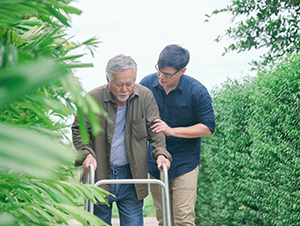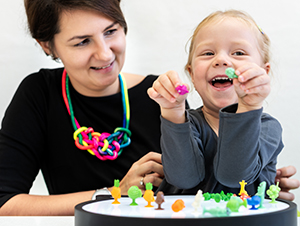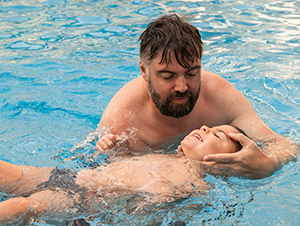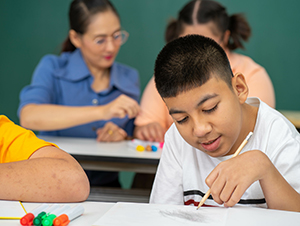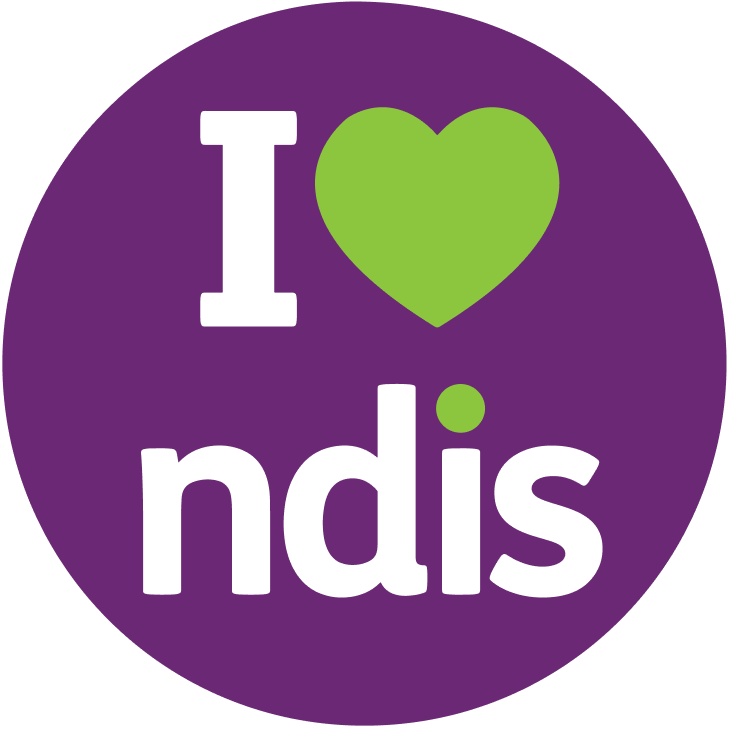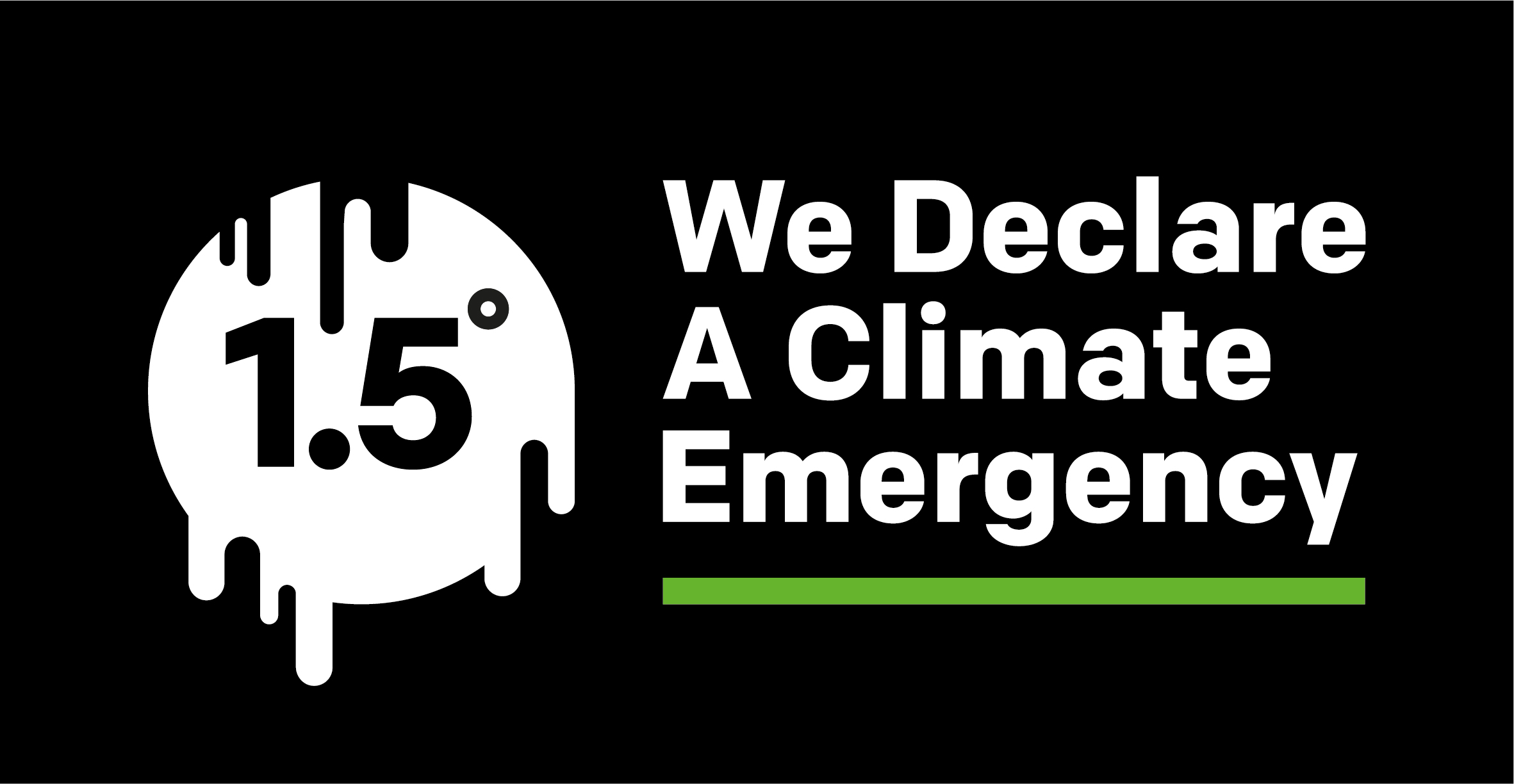Allied Health Services with Fora and how it works
Information for individuals and carers.
Fora Therapy is a in-home therapy provider with a community of Allied Health Assistants all over Australia.

Working with an Allied Health Assistant helps Liam reach his therapy goals faster.
Liam, a young boy on the Autism spectrum, works with his Speech Pathologist, Laura, on his therapy goals. Between sessions with Laura, Liam practices implementing therapy at home with Mia, an Allied Health Assistant.
Allied Health Assistants help clients implement the therapy plan that has been created by their Speech Pathologist or Physiotherapist. Consequently, they ensure that the therapy is effectively carried out.
They are typically students studying Allied Health, holders of a Certificate III or IV in Allied Health Assistance, or Allied Health graduates.
For example, Mia lives nearby and is currently in her third year of Speech Pathology at university. She regularly checks in with Laura to update her on Liam’s progress and to receive feedback on how to best support Liam’s therapy journey. Importantly, Mia’s support supplements, rather than replaces, Laura’s ongoing Speech Pathology sessions.
By working with both Laura and Mia, Liam can access more hours of therapy without increasing his budget, thereby enabling him to reach his goals faster!
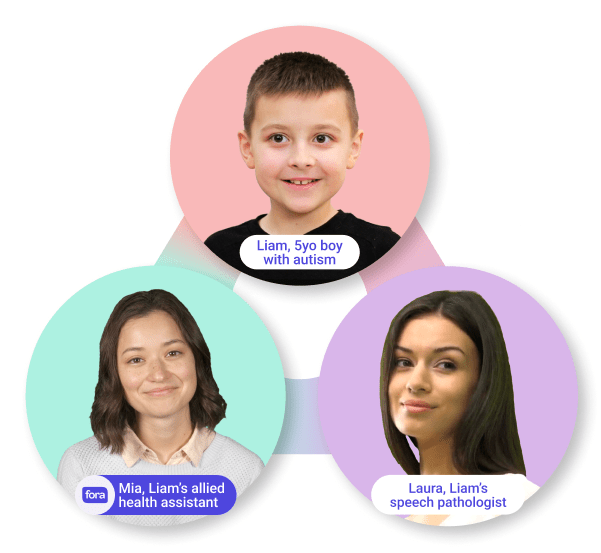
Maximise your budget.
Working with an Allied Health Assistant (AHA) between sessions with your Allied Health Professional (AHP) means you can access up to 3 times as many hours of therapy — all without increasing your budget!
This diagram, therefore, is based on therapy hours for an average plan.
*Estimate includes Allied Health Professional (AHP) travel, note writing and any other extra fees.
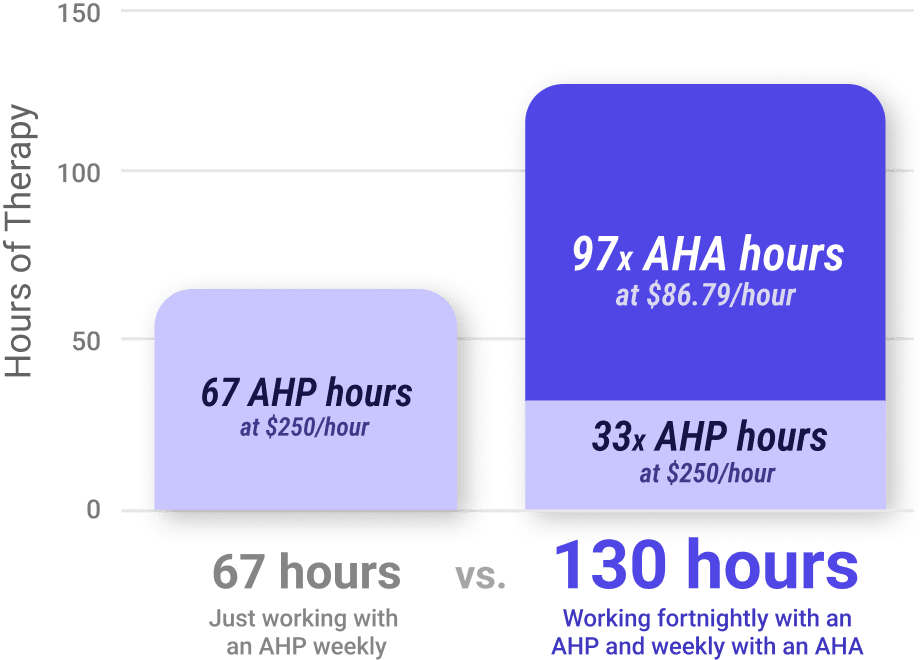
So far, we’ve helped over 1,200 families access over 40,000 hours of therapy.
How people are using Fora
How to start working with an Allied Health Assistant
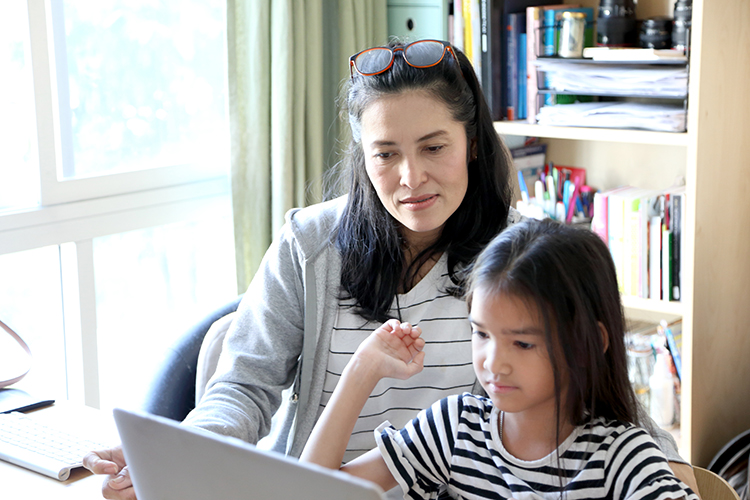
Step 1: Discuss with your Allied Health Professional, then create an account
Discuss with your therapist whether an Allied Health Assistant (AHA) would be suitable for the person seeking assistance. If so, create an account and answer some simple questions using our short form.
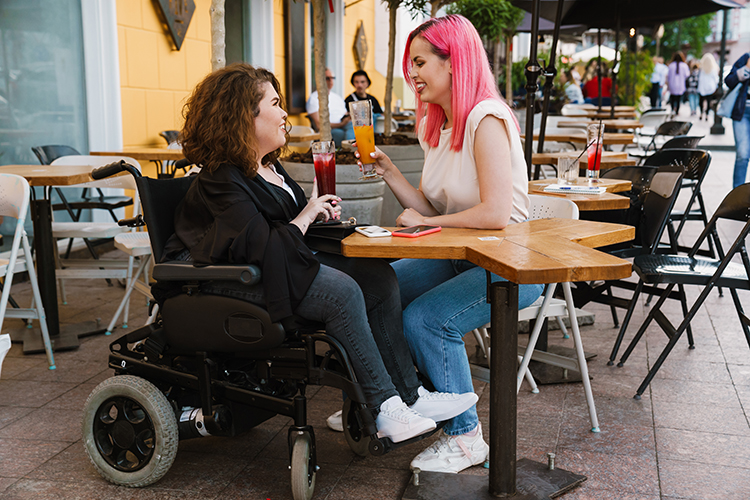


Step 4: Regular sessions and check-ins
Organise future sessions directly with your Allied Health Assistant. Depending on how your funding is managed, you will receive fortnightly invoices from us.
Additionally, the AHA will regularly check in with the AHP through joint sessions, video calls, or phone calls. The AHP will determine the frequency of these check-ins based on the needs of the person seeking assistance, and it may vary over time.
Frequently asked questions
Previously known as Ally Assist, Fora is a service for NDIS participants who are seeking additional support alongside their Allied Health Professional (AHP) through an allied health assistant (AHA). We aim to find a suitable allied health assistant based on location, availability and experience level.
To start your Fora journey, you will need to sign up and create an account, agree to our Terms of Use and fill out a New User Form which will ask you questions about the person seeking allied health assistance.
Please make sure you provide as much relevant information as possible as this will assist us in finding a suitable therapy assistant for you. If have you have any questions, please email info@foratherapy.com or give us a call on 1800 921 422.
An allied health professional is a qualified professional that has completed their training and is a certified practitioner with the Australian Health Practitioner Regulation Agency (AHPRA) or their relevant professional peak body. They often have specialist knowledge within their domain.
Most often, our allied health assistants are not qualified therapists. They are either:
- studying or working towards becoming a qualified therapist (AHP).
- an allied health graduate that has completed their training but are not yet registered with AHPRA or their relevant peak body.
- a graduate of a cert IV in allied health assistance (AHA).
An allied health assistant does not replace the role of a qualified therapist in the diagnosis, assessment, treatment or management of an individual.
An allied health assistant’s role is to help you build your capacity and increase your independence. They do this by:
- Helping you to implement your therapy plan and strategies created by your allied health professional (AHP).
- Seeing you in-between your appointments with allied health professionals.
- Helping you practice and reinforce what you’ve learned with your allied health professionals.
Important note: An allied health assistant does not replace your allied health professional. They must work together and will require regular check-ins every 4 to 6 weeks to ensure strategies are up-to-date to best support you.
In order to be linked with a Fora allied health assistant:
- You need to have an ongoing relationship with an Allied Health Professional (AHP).
- Your AHP must be willing to provide a handover to the selected therapy assistant and provide support and guidance every 4 to 6 weeks to ensure the therapy plan is up-to-date.
- If the person seeking assistance isn’t able to create and manage their account (to organise bookings, cancellations etc.), a family member, primary carer, support coordinator or AHP can do so on their behalf.
To ensure that we can find an allied health assistant that is suitable for you, we will ask you to provide your therapy goals, your Allied Health Professionals’s details, your location, your availability and any other preferences for therapy assistance. We also ask if there are any challenging behaviours that an allied health assistant needs to be aware of in order to best support you during sessions.
The Fora account creator will be required to agree to our Terms of Use before we can finalise the application and start the search for a suitable allied health assistant.
Yes, Fora is a registered NDIS provider.
Yes. We screen applicants based on their previous experience, performance during a phone interview and reference checks.
All our allied health assistants undergo the following checks:
- Proof of identity check
- Working with Children’s Check
- National Police Check
- Disability Workers Exclusion List check
- NDIS Clearance
- Phone interview
- Professional Reference checks
- Fully vaccinated from COVID-19
Upon being verified and prior to beginning employment, allied health assistants also complete:
- OH&S Safety Module
- NDIS Quality, Safety and You Module
- Infection Control Training
All allied health assistants Working with Children’s Checks can be made available upon request and allied health assistants are encouraged to have a physical copy of these checks with them at all times when working in the community.
To view our rates and frequently asked questions, please check out our Pricing Page.
If you have any questions, please contact us at info@foratherapy.com or call us on 1800 921 422.
Invoicing occurs fortnightly.
If you are paying for the service privately, or if your NDIS funding is self or plan-managed, you will be emailed an invoice that can be paid via direct bank transfer or PayID.
Participants with agency-managed NDIS funding can request to have their invoices sent to them.
Allied health assistants are not involved in the invoicing process. For any questions or concerns with payments or invoicing, please email accounts@foratherapy.com.
The creator of the Fora account can book a meet and greet with an allied health assistant by:
- Logging into your Fora account.
- The allied health assistant’s application will appear on your dashboard.
- You will be able to view their degree, experience and availability for sessions.
- Applications expire after 6 days.
- If you feel the allied health assistant is suitable, you can “accept” their application and book a meet and greet online.
- You and the allied health assistant will be sent a calendar invitation to confirm this meet and greet.
- If the times provided for a meet and greet are not suitable, please email us at info@foratherapy.com or call us on 1800 921 422.
- If you feel the allied health assistant is not suitable, please “decline” their application as it will allow them to pursue work with other clients.
You can meet with more than one allied health assistant. However, given the high demand from families for therapy assistants, you will only be able to organise one meet and greet at a time.
We found that allowing clients to book multiple Meet and Greets slows down the matching process significantly for other clients and families in need.
Rest assured though, you don’t need to feel pressured in your choice. If the first allied health assistant chosen is not quite right for you after the meet and greet, we can reach out to another applicant and organise a meeting if they are still available. If the other applicants are not suitable, we will continue the search and allow more allied health assistants to apply.
There is no limit on how many allied health assistants you can work with, as long as each of them are involved in a Team Meeting with you and your allied health professional.
If you require several hours of therapy on multiple days per week and a single allied health assistants is not available to fulfil those shifts, we will be able to search for additional allied health assistants to join your team to ensure you receive the required amount of sessions.
If you have limited funding or you only want a few hours of therapy a week, we would recommend one allied health assistant at a time.
During the meet and greet, both parties should discuss as much as possible to ensure they will be a suitable fit. Topics to cover should include availability, expectations, experience and ongoing sessions.
Please refer to our meet and greet guide for more information about what happens and what should be discussed.
This is decided at the Team Meeting. Everybody has different needs, so the frequency of check-ins between an AHP and the therapy assistant will vary. We do recommend check-ins to occur every 4 to 6 weeks to ensure the allied health assistant is supported, guided and has the most up-to-date therapy plan on how to best support the person requiring assistance.
Question not answered here? Check out our full knowledge base here
